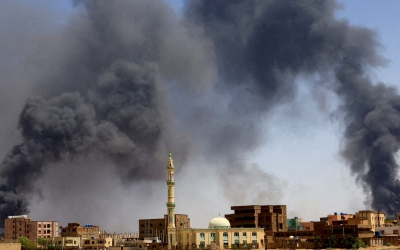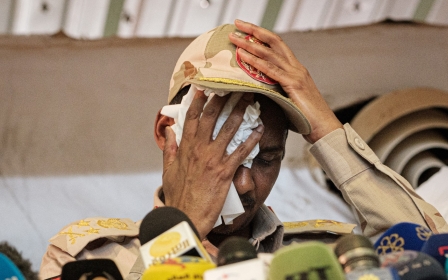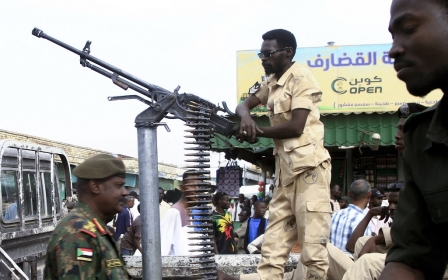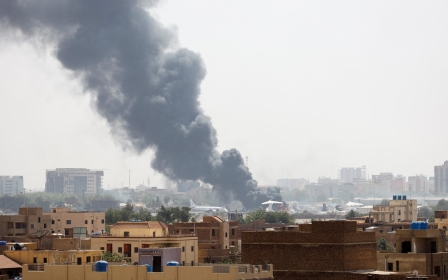Sudan civil war: How Elon Musk's X is fuelling the conflict
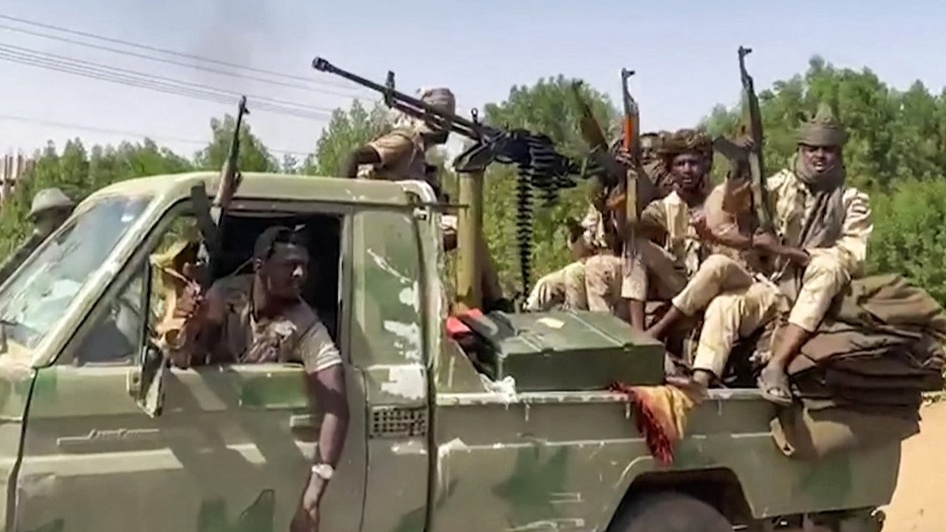
Sudan’s civil war and humanitarian catastrophe have been overshadowed in international news by the conflict in Ukraine and Israel’s war on Gaza.
Yet what began in April 2023 as a violent power struggle between two rival strongmen has since devastated the entire nation.
Tens of thousands of people have died, with millions more displaced. Widespread human rights violations have reportedly occurred, while hospitals, schools, roads and utilities lie in ruins.
Amid all of this, both the Sudanese Armed Forces (SAF) and the opposing Rapid Support Forces (RSF) have made extensive use of digital propaganda. They share a mutual desire to whitewash their abuses while capturing the hearts and minds of the Sudanese people and foreign benefactors.
But it’s Elon Musk’s hands-off approach to X (formerly Twitter) that has enabled the RSF - a brutal paramilitary force headed by warlord Mohamed Hamdan “Hemeti” Dagalo - to build an online facade of compassion, masking the group’s heinous atrocities.
New MEE newsletter: Jerusalem Dispatch
Sign up to get the latest insights and analysis on Israel-Palestine, alongside Turkey Unpacked and other MEE newsletters
As Sudan’s de facto head of state, SAF leader General Abdel Fattah al-Burhan has unfettered access to government media channels and sympathetic news outlets.
By contrast, the RSF has made skilful use of social media to try to brand itself as an agent of democracy. While these issues extend to various platforms, X has been especially problematic.
Never mind that wherever the RSF has gained ground, its fighters have terrorised civilians, looted homes, ransacked priceless artefacts from museums, and razed whole communities.
False image
Shortly after initial fighting erupted in Khartoum, the RSF in May 2023 set up a so-called “hotline” on WhatsApp to connect residents in occupied areas with humanitarian aid and help with evacuations.
A specialised task force similar to a neighbourhood police watch was created, with the stated mandate of protecting civilians from crime as law and order broke down.
Posts in recent months have highlighted a new reconciliation and peace committee handing out food and supplies, and visiting children’s classrooms and displacement camps. Other videos have shown the group claiming to set up water pumps or return stolen property.
On 12 August, Hemeti posted an eight-minute video on X of himself announcing the creation of a new civilian protection force. This new entity is essentially a consolidation of the group’s earlier alleged humanitarian and peace efforts.
It is to start its work immediately and expand to cover RSF-held cities across the country, with a mandate to protect the lives and property of civilians, facilitate humanitarian operations and ensure the safety of aid workers. It's also been tasked with facilitating the voluntary return of displaced persons to their home communities, and more.
Hemeti’s video received well over 800,000 views in a few days on his official page alone. It painted an image of him as a concerned and committed leader.
The force’s areas of responsibility, outlined in the video, do indeed align with citizens’ concerns. But there’s little expectation among analysts that this work will be actualised.
Yet the RSF’s intention to speak to the hearts of the international community is evident. The video makes it clear that the RSF seeks to assert itself as a responsible pseudo-state actor within Sudan in an effort to somehow render its armed activities forgotten.
Ethnic cleansing
As anticipated, there’s little to no information about how this new force will be constituted or how it will operate. And while the RSF portrays itself on X as facilitating humanitarian aid, social services and other provisions, United Nations agencies report that the group has impeded humanitarian relief by obstructing truck deliveries of food aid.
Observers routinely find that information on any RSF social media page cannot be considered reliable or credible.
Putting in place limitations to stem the war in the digital domain is a low-hanging fruit that could make a difference in the meantime
Meanwhile, Hemeti’s fighters - recruited from Sudan’s majority Arab population - are alleged to be engaged in ethnic cleansing, systematic killing and sexual violence against non-Arab ethnic groups in Darfur.
Compounding this, the RSF is harnessing Starlink internet services to circumvent internet blackouts and operate as a more efficient fighting machine.
Terminals belonging to Starlink - another Musk-controlled company - are being obtained by the RSF via illicit smuggling routes connecting Sudan to neighbouring Chad and South Sudan.
Even in the context of X’s hollowed-out rules banning violent and hateful entities, this should be sufficient grounds to dismantle RSF-affiliated accounts on the platform, which combined have nearly half a million followers.
Sudan’s civil war will remain protracted so long as the proliferation of interminable peace processes continues.
Putting in place limitations to stem the war in the digital domain is low-hanging fruit that could make a difference in the meantime.
The views expressed in this article belong to the authors and do not necessarily reflect the editorial policy of Middle East Eye.
Middle East Eye delivers independent and unrivalled coverage and analysis of the Middle East, North Africa and beyond. To learn more about republishing this content and the associated fees, please fill out this form. More about MEE can be found here.


